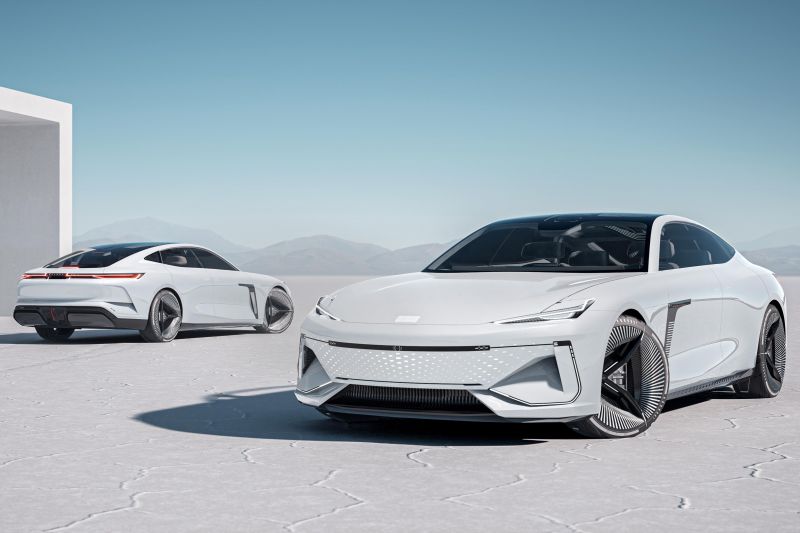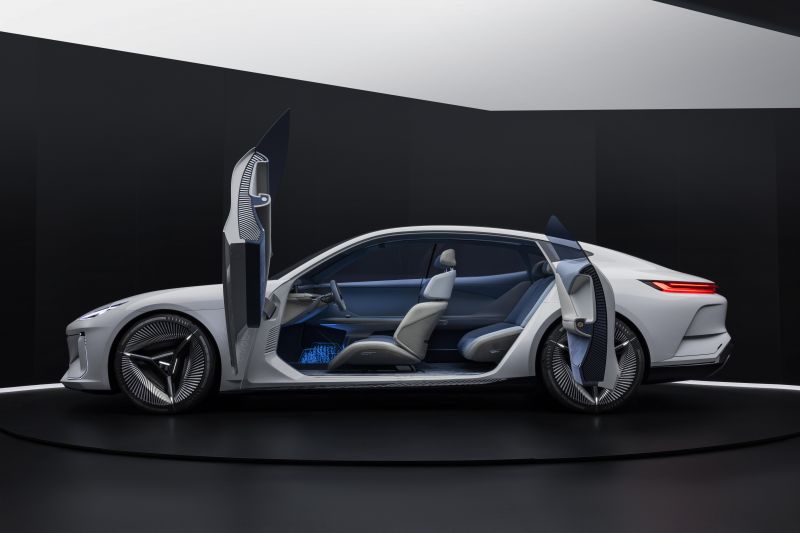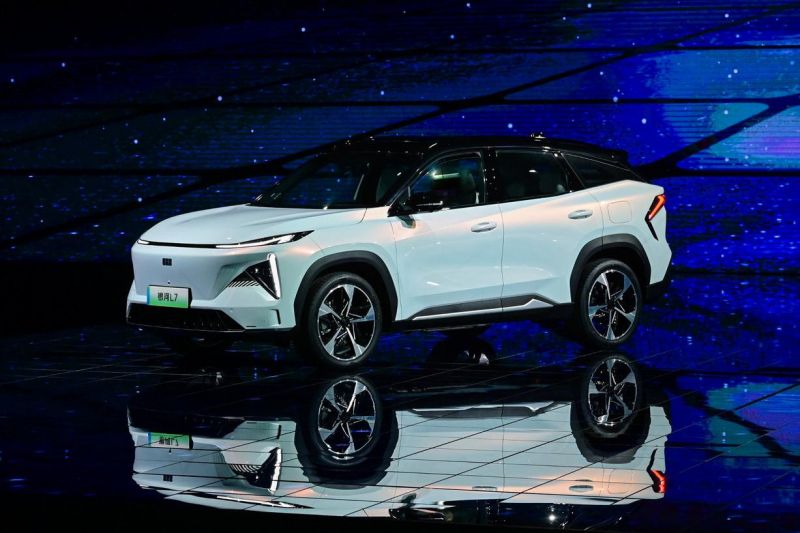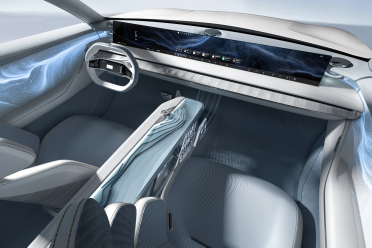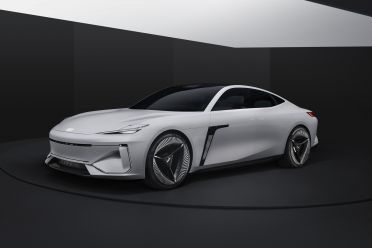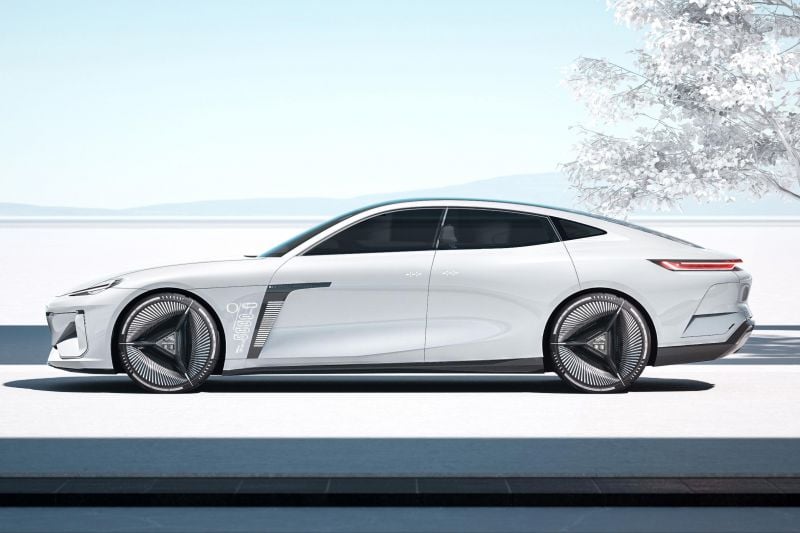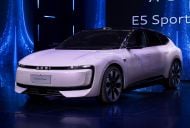Chinese auto giant Geely has announced Galaxy, a new sub-brand to specialise in high-end electrified and electric vehicles, and will launch new technology plus a range of seven models by 2025.
The company has revealed the sub-brand’s first model, the Galaxy L7 plug-in hybrid (PHEV) SUV, as well as the fully-electric Galaxy Light concept vehicle showcasing the technology that will underpin the rest of the range.
The Galaxy Light concept vehicle has a fastback sedan profile with coach doors opening onto a tech-heavy interior concept with ambient lighting and an array of screens.
The growth of Galaxy won’t be slow and steady, with seven new models to be launched within the next two years.
Four of these models will be PHEVs, including the Galaxy L7 SUV and a sedan named the L6, which will reach initial customers in the second and third quarter of this year.
The further three models will be all-electric models forming the ‘pure galaxy E range’, with the first launch being the Galaxy E8 in Q4 of this year.
Alongside new models, Geely Auto also unveiled new EV technologies including a new battery management system, an updated powertrain, and a bespoke operating system, to be used in the Galaxy range and Geely brands such as Polestar, Lynk & Co, and Zeekr.
Geely has said that the Galaxy range will be built on an unnamed ‘smart electrified architecture’ and Geely’s own electrified compact modular architecture (E-CMA), which has been used in other Geely-backed models like the Polestar 2 and Volvo C40.
The Galaxy sub-brand’s new Aegis battery safety system will eventually be rolled out to other Geely vehicles.
The Aegis system provides additional protection against direct impacts to the battery and works with the vehicle’s internal computing system to predict thermal damage to the unit, which in tandem Geely say will increase battery life by 20 per cent.
The latest generation of Geely Auto’s powertrain, the NordThor 8848, paired with a three-speed dedicated hybrid transmission (DHT), has improved fuel economy by up to 15 per cent.
This powertrain configuration in the initial Galaxy L7 SUV model will take it from 0 to 100km/h in 7.5 seconds and provide an ultimate top speed of 200km/h.
Geely has yet to reveal the pure-electric range of the Galaxy L7, but has confirmed the model will drive 1370km on a full tank in hybrid driving mode.
The Galaxy range will run on its own Galaxy N-Operating System, which is part of Geely Auto’s wider strategy to have chips, operating systems, intelligent cloud computing, and satellite networks developed in-house by 2025.
The Galaxy N-Operating System will be supported by the Snapdragon 8155 system-on-chip (SoC), getting the vehicle system ready-to-drive in only 0.5 seconds.
There has been no mention of whether or not Geely plans to sell the Galaxy range outside of China, but it did say that its own network of 72 satellites which allow intelligent driving functionality will provide ‘full global coverage’ by 2025, indicating a possibility for global expansion in the future.
Geely-owned Lotus, Polestar and Volvo are busy rolling out more EVs, while the Chinese giant also exclusively sells EVs under the Geometry and Zeekr marques.





